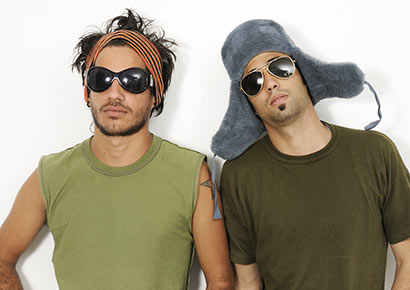New research adds to evidence that we are born gay
 Groundbreaking research led by a team from Brock University in Canada has further confirmed that sexual orientation for men is likely determined in the womb and that we are ‘born gay’.
Groundbreaking research led by a team from Brock University in Canada has further confirmed that sexual orientation for men is likely determined in the womb and that we are ‘born gay’.
The research is said to be the first-ever laboratory study of mothers of gay men and was prompted by more than two decades of statistical data examining the ‘older brother effect’.
This effect shows that biological older brothers — but not older sisters — increase the odds of homosexuality in later-born males. In other words, the more older brothers a man has from the same mother, the greater the probability that he will be gay.
Brock Health Sciences Professor Tony Bogaert, lead researcher on the project, said the new study has produced some of the most significant findings in men’s sexual orientation research in the past 10 or 15 years.
“The implications of this study, especially if and when it is replicated by an independent team, are profound,” said Bogaert. “Along with more deeply understanding the exact origin of the older brother effect, it helps solidify the idea that, at least in men, there’s a strong biological basis to sexual orientation.
“The current study adds to the growing scientific consensus that homosexuality is not a choice, but rather an innate predisposition.”
Bogaert, an internationally recognised expert in human sexuality, said the study is groundbreaking in that it supports the conclusion, suggested by previous studies, that genes alone do not completely account for homosexuality.
It also suggests that immunological factors should be considered along with genetic and hormonal factors as possible biological influences on sexual orientation.
Bogaert said that since the older brother effect was first discovered two decades ago, many studies have replicated it, including cross-cultural ones. The researchers set out to test the major biological theory explaining this effect through a lab study.
The team of psychologists and immunologists tested 16 women with no sons, 72 mothers with heterosexual sons, 31 mothers of gay sons with no older brothers, 23 mothers of gay sons with older brothers, and a control group of 12 men.
The women’s antibody reactivity was measured to two proteins (PCDH11Y and two forms of NLGN4Y) found only in males, both of which are expressed in the male fetal brain.
The team found that mothers of gay sons, especially those with older brothers, had significantly higher antibody levels to both forms of NLGN4Y than did the control samples of women, including mothers of heterosexual sons.
“It seems that some women during their first male pregnancy, or just after their first male birth, begin to detect this foreign substance (the NLGN4Y protein) and start to develop an immune response. And then later, with further male pregnancies, the high levels of antibodies directed toward this substance may change brain development in these later born males,” Bogaert said.
This confirms that the older brother effect is very likely immunological in origin. “We think it’s very important to understanding male sexual orientation,” said Bogaert. “It speaks to the mechanisms of sexual orientation development.”
The psychologist pointed out that the effects are modest and the likelihood of a male child being born gay is still small — even if they have multiple male siblings.
“The vast majority of men with older brothers are still heterosexual, but it says something very broad about sex and gender development,” said Bogaert.
While the research is significant, it is important to note that previous studies indicate that only 15% of gay men are linked to the ‘older brother effect’, suggesting that homosexuality as a whole is likely due to a complex interplay of factors.
The study was published in the journal Proceedings of the National Academy of Sciences.
Leave a Reply